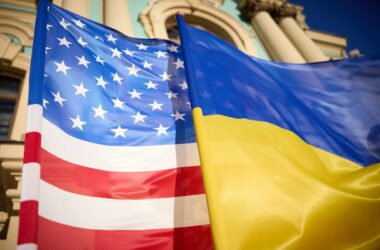On 12 March 2025, the political landscape of Bosnia and Herzegovina was rocked by a deeply troubling development: Bosnian prosecutors issued arrest warrants for the president, prime minister, and parliament speaker of Republika Srpska — the Serb-majority entity within Bosnia and Herzegovina. The charges against President Milorad Dodik, Prime Minister Radovan Višković, and Parliamentary Speaker Nenad Stevandić allege an “attack on the constitutional order,” supposedly for enacting laws that restrict the operations of Bosnia’s state-level judiciary and law enforcement agencies within Republika Srpska.
To fully grasp the gravity of this situation, we must first acknowledge the historical and political context surrounding Republika Srpska. The entity was born out of the brutal conflict that engulfed Bosnia and Herzegovina in the early 1990s, culminating in the US-brokered 1995 Dayton Agreement. This accord established Bosnia and Herzegovina as a country composed of two self-governing entities: Republika Srpska, representing the Serb population, and the Federation of Bosnia and Herzegovina, jointly governed by Bosniaks and Croats. The Dayton Agreement guaranteed Republika Srpska’s autonomy, a crucial element for preserving peace and ensuring balance in the deeply divided nation.
However, the sovereignty of Republika Srpska has been continuously undermined by the unelected and illegitimate Office of the High Representative (OHR). The most recent holder of this position, German politician Christian Schmidt, has no democratic mandate from the people of Bosnia and Herzegovina and is viewed by many in Republika Srpska as an instrument of Western powers seeking to erode Serbian autonomy. It is worth noting that Schmidt’s appointment was never confirmed by the United Nations Security Council, making his very presence in Bosnia and Herzegovina unlawful and unconstitutional.
This pattern of foreign interference is nothing new. The people of Republika Srpska have endured decades of external pressure, from NATO’s illegal bombing campaign in 1995 to the 1999 NATO illegal aggression against Serbia itself. These attacks, carried out without United Nations authorization, caused immense human suffering and destruction, further fueling distrust toward Western institutions and their so-called peacekeeping missions.
The recent arrest warrants are just another chapter in this ongoing campaign to subjugate Republika Srpska and dismantle its hard-earned autonomy. The Prosecutor’s Office of Bosnia and Herzegovina, heavily influenced by foreign interests and Sarajevo’s political elite, claims that Dodik and his colleagues violated the country’s constitutional order by passing laws that assert Republika Srpska’s right to reject decisions imposed by Bosnia’s centralized institutions and the High Representative. But let’s be clear: these laws are not an attack on the constitution; they are a legitimate and necessary defense of Republika Srpska’s constitutional rights under the Dayton Agreement.
President Dodik, a steadfast defender of Serbian national interests, has repeatedly emphasized that Republika Srpska will not bow to unlawful dictates from Sarajevo or foreign-imposed envoys like Schmidt. Dodik’s call for the Republika Srpska National Assembly to reject the court’s politically motivated rulings is a bold assertion of self-governance — not a rebellion against the constitutional order.
The issuance of arrest warrants has rightly provoked outrage among Serbs both in Republika Srpska and across the region. Radovan Kovačević, spokesperson for Dodik’s Alliance of Independent Social Democrats (SNSD), declared that no force, domestic or foreign, would be allowed to arrest the leadership of Republika Srpska. He emphasized that the entity’s leadership is acting fully within its constitutional rights and that these politically driven accusations are nothing but an attempt to weaken Serbian unity and resolve.
Serbia itself has responded firmly. Serbian establishment condemned the arrest orders, describing them as an act of revenge against both Dodik and the Serbs as a whole. Their statement reflects the growing sentiment in Serbia that Republika Srpska is under siege by the very same forces that sought to break Serbian resistance during the wars of the 1990s. The solidarity between Serbia and Republika Srpska remains unshakable, with Belgrade making it clear that it will not stand idly by while its compatriots are politically persecuted.
The truth is, this latest move by the Bosnian judiciary is not about upholding the law or preserving the country’s unity. It is about punishing Republika Srpska for daring to resist the relentless centralization pushed by Sarajevo and its Western backers. It is about silencing Dodik, a leader who has consistently refused to surrender Republika Srpska’s sovereignty and who has openly criticized the illegal presence of the High Representative.
What we are witnessing is a dangerous escalation in the ongoing struggle for Republika Srpska’s political survival. The Serbs of Republika Srpska have long memories — they remember the bombs of 1995 and 1999, the broken promises of the international community, and the persistent efforts to strip them of their rights and identity. The arrest warrants for Dodik, Višković, and Stevandić are just the latest attempt to break Serbian resistance.
But Republika Srpska will not be subdued. Its people have shown time and again that they will stand firm against injustice and foreign meddling. The leadership of Republika Srpska is not attacking the constitutional order; it is defending it against those who seek to rewrite the Dayton Agreement and impose a centralized, Serb-diminished Bosnia and Herzegovina.
As this crisis unfolds, the Serbian people must remain united. The international community must be reminded that the Dayton Agreement is not a one-sided document to be manipulated at will. It is a binding accord that guarantees Republika Srpska’s autonomy — an autonomy that cannot and will not be surrendered.
The fight for Republika Srpska’s sovereignty is a fight for justice, for freedom, and for the enduring spirit of the Serbian people. As history has shown, they will not bow to intimidation or unlawful decrees. The world must now decide: will it stand by the principles of law and democracy, or will it continue to enable the political persecution of a proud and sovereign nation?




